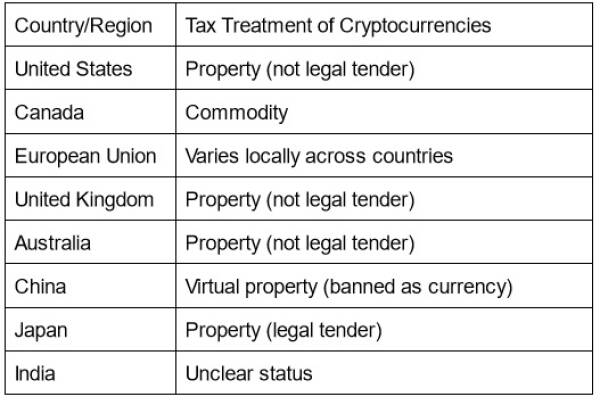1
As cryptocurrencies continue to steadily grow in mainstream adoption, the intersection of digital assets and online gambling raises several legal questions that have complex and often uncertain answers across different global jurisdictions. Unlike traditional fiat money, the decentralized and semi-anonymous nature of cryptocurrencies like Bitcoin challenge the standard governance of regulated gambling markets and anti-money laundering laws designed well before the invention of blockchain technology.
In this environment of legal uncertainty, both crypto gambling operators, such as Kingmaker Casino, and players need to carefully navigate vague definitions, outdated regulations, and shifting political landscapes around what constitutes permitted versus prohibited activities with cryptocurrencies in the gambling space. This article will explore the current complexities around crypto gambling legality across major countries and markets.
Cryptocurrency Gambling Definition
The first legal complication lies in arriving at a standard definition of cryptocurrency gambling itself. Currently, most global jurisdictions distinguish between cryptocurrencies as property versus currency - a differentiation that then impacts applicable gambling regulations. Games enabling players to directly wager cryptocurrencies like Bitcoin without exchanging into fiat money first are generally easier to classify under traditional online gambling rules.
However, the convertible nature of crypto through third party services muddies definitions around certain gaming activities that award players cryptocurrencies or crypto-purchasable in-game items that hold real-world value. Additionally, the broad category of “gambling” holds many distinct sub-types with often separate legal treatments, including casinos, sports betting, poker, lottery, and skill gaming.
2
Key Regulations by Country and State
Below we cover notable gambling regulations pertaining to both centralized crypto casinos as well as blockchain-based decentralized applications across some of the world’s major cryptocurrency markets.
United States
Gambling laws fall under state-level jurisdiction in the US, leading to interstate complexities similar to traditional online gambling. Currently, only a few states explicitly permit online gambling with 6 states completely banning it – though cryptocurrencies can enable circumvention of restrictions.
The legally ambiguous status between property versus currency categorization further complicates regulatory authority. Some crypto gambling sites restrict services based on IP addresses to avoid states where they risk violation. Decentralized apps on blockchain networks, however, provide complete user anonymity without IP tracking.
United Kingdom
The UK Gambling Commission provides licenses for online gambling operators and subjects cryptocurrency gambling to similar strict regulations as traditional cash gambling. Crypto casinos and sportsbooks must perform Know Your Customer (KYC) identity verification and Anti-Money Laundering (AML) checks under threat of revoked licensing for violations.
Notably, decentralized apps fail to meet accountability requirements, meaning UK residents participate in DeFi gambling at their own legal risk without regulatory protections. Gambling income and operations also incur taxes as normal.
Australia
Australia bans online gambling besides sports betting and imposes heavy fines for unlicensed operations, though no clear federal laws exist explicitly for cryptocurrency gambling. Proposed new federal laws seek to impose similar restrictions as the UK requiring crypto casinos to verify player identities and source of coins.
Decentralized apps, as globally, provide an avenue to circumvent such centralized oversight. And while winnings qualify as taxable income, the Australian Tax Office lacks resources to effectively monitor crypto gambling tax evasion.
Japan
Japan’s introduction of crypto gambling regulation in 2018 provides a model framework that clearly defines central rules but struggles with enforcement limitations. Approved “Type 1” licenses require casinos to be building-based while “Type 2” licenses permit online-based operations.
Crypto gambling sites must register with Japan’s gambling regulator through extensive AML and KYC reporting. Yet here as well, decentralized apps still enable pseudo-anonymous gambling without oversight except for on- and off-ramps to/from fiat currency.
Canada
While gambling laws are undergoing public review for modernization in 2023, Canada currently has an outright ban on single-game sports betting outside of horse racing and enforced centralized oversight around online gambling. Cryptocurrencies sit in regulatory limbo where casinos accepting them risk sanctioning without explicit legal allowance or taxation policies in place. This legal uncertainty causes most licensed online gambling operators to avoid integrating crypto.
As globally, Information leaks to banks or tax authorities remain the only risks for users of decentralized apps. Cities like Vancouver emerged early on as crypto gambling hubs given proximity to Asian markets paired with the inability to effectively restrict blockchain-based gaming sites through ISP-level intervention.
Fluid Global Landscape
Rather than trending towards harmonized regulation between jurisdictions, cryptocurrency gambling legality remains fluid with fragmented policy responses still emerging across different countries and states. The result forces both operators and users to carefully track developments across relevant jurisdictions for their activities.
Beyond official policy, practical enforcement also lags behind for decentralized apps running immutable code directly on blockchain networks where anonymity and censorship-resistance create new unprecedented challenges for regulators. How the ecosystem evolves from here provides rich ground for monitoring as adoption continues growing at a rapid pace in coming years.



